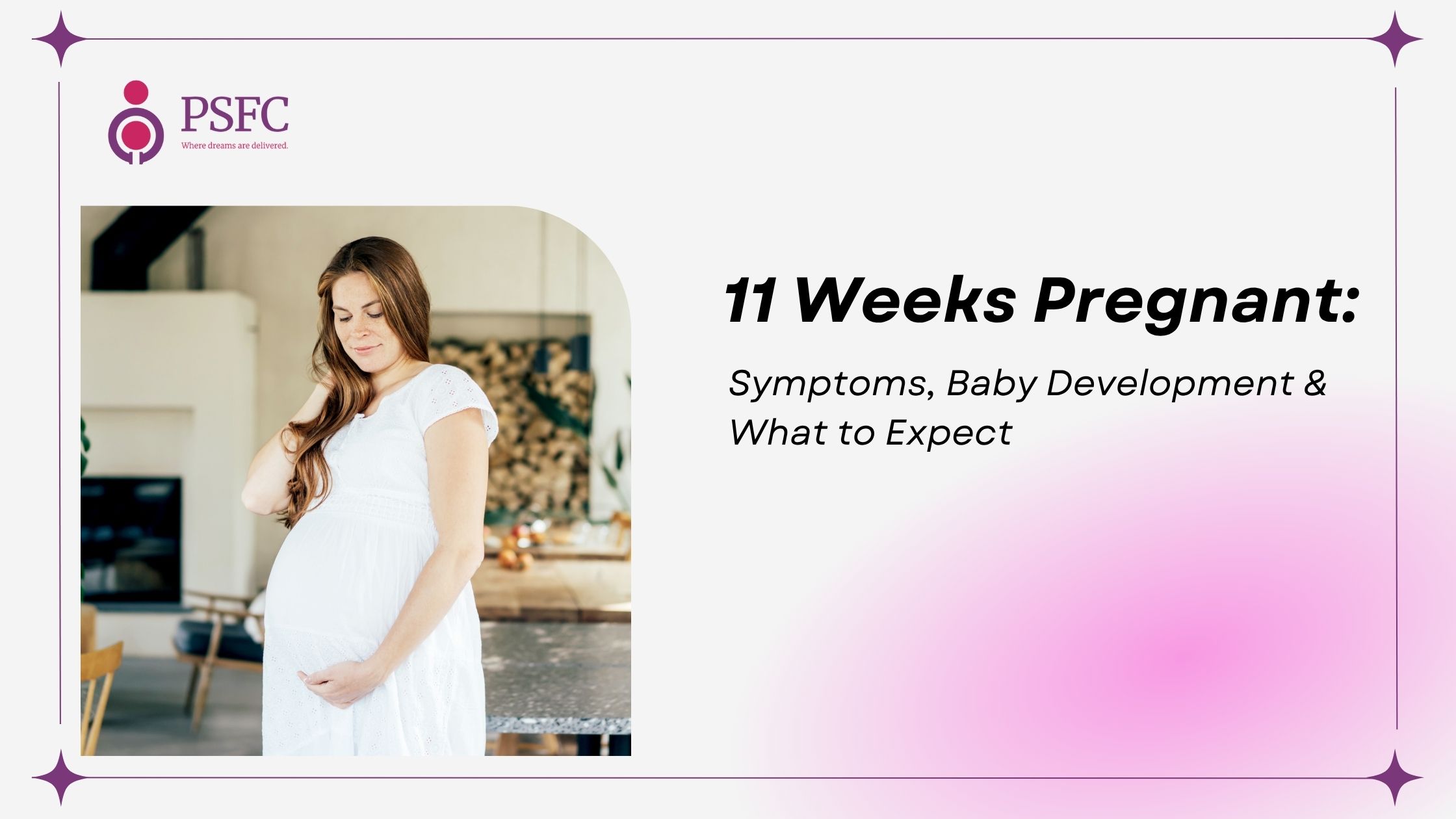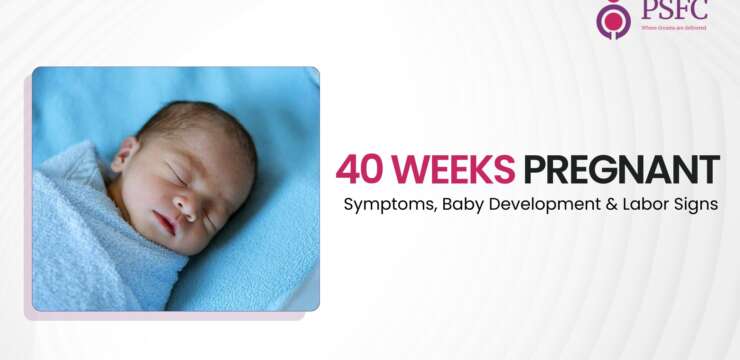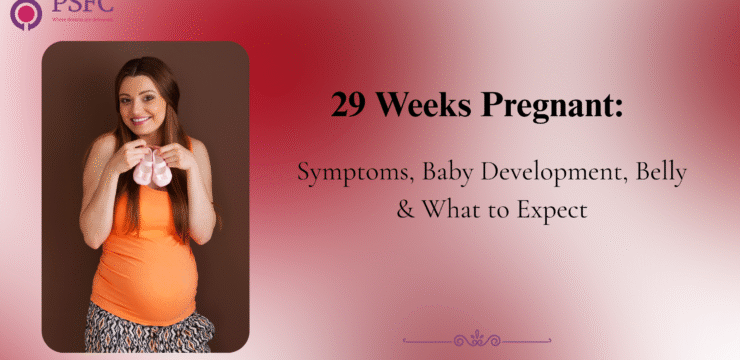Congratulations on making it this far in your pregnancy–almost the end of the first trimester! By now, your baby should be growing rapidly, while symptoms may still be strong, and you may be asking, “What happens at 11 weeks pregnant?, “How big is my baby?” and “Can my baby feel me touching my belly yet?” all seem reasonable inquiries.
This broad blog offers special insights on 11 weeks pregnant symptoms and all things related to development: child growth, ultrasound scan, collision change, diet plan, abortion risk evaluation, and managing symptoms-all were presented in a favorable way.
How Do You Feel at 11 Weeks Pregnant?
At 11 weeks pregnant, your body is still adjusting to high hormone levels; Many pregnant mothers experience both enthusiasm and discomfort during this phase of conception.
Energie Shift: Some women start noticing a slight increase in energy as they near the second trimester.
Morning sickness: While symptoms can still be strong, most should start improving in a few weeks.
Emotional ups and downs: Hormones can play a big role in our mood; You can feel happy for a minute and worry the next.
Physical changes: You can feel more bloated and more tired than normal, and can start looking at the initial changes in the stomach.
It is completely normal to feel both excited and nervous right now; Your body is doing an excellent job.
Pregnant at 11 Weeks but Having No Symptoms
11 Weeks Pregnant Symptoms
Here are the symptoms associated with being 11 weeks pregnant:
Nausea and vomiting (still common, though may begin to improve over time).
Fatigue-Your body has been working overtime to support the growth of a baby.
Breast discomfort as milk ducts expand.
Frequent urination could be due to increased blood flow and pressure from your uterus.
Constipation and bloating are caused by progesterone.
Food Cravings/Aversions–You may experience unusual food combinations or foods you once enjoyed being offensive to you.
Headache or dizziness due to hormonal shift.
Dreams or sleep disruptions occur as a result of brain activity, and an increase in hormones can also cause vivid images or changes.
Light cramps or stretching sensations are expected as your uterus expands.
If you experience heavy bleeding, severe abdominal pain, or excessive vomiting, please seek medical advice immediately.
11 Weeks Pregnant: How Many Months Is That?
In 11 weeks of pregnant, you have officially entered the 3 month of pregnancy.
Here’s the breakdown:
Week 1-4 = month 1, week 5-8 = month 2, week 9-13 = month 3. You have reached 11 weeks of the womb, which indicates that your risk of abortion decreases significantly after this point. Many women felt relaxed to know that this figure provides them with confidence that the risk of abortion decreases after week 11.
11 Weeks Pregnant Bump
Wondering What Your 11 Weeks Pregnant Belly Should Look Like? – Let Us Give You Some Guidelines.
First Pregnancies: Most first-time mothers don’t show belly much at 11 weeks. Your uterus should now be approximately the size of a grapefruit, and most of your belly remains bloated.
Second and subsequent pregnancies: You may notice an early baby bump as your abdominal muscles have stretched prior to this pregnancy.
Weight Gain: Most women experience between one and four pounds of weight gain every month. In each case, women usually receive one or four pounds over time.
Tight Clothes: Over time, tight clothes can be uncomfortable for you, and so it can be important for you to wear relaxed clothes or even maternity clothes for maximum comfort.
Every woman’s body is different; So, don’t compare your pregnancy with others – this journey is unique to you.
Baby Development at 11 Weeks Pregnant
Your baby is progressing rapidly! Here’s what happens at 11 weeks pregnant:
Size and Weight: Baby measures roughly 1.6 inches long and 7 grams, roughly equivalent to the size and weight of a fig tree!
Head & Face: Facial features have become more defined, while ears have begun their migration towards their permanent positions.
Hands & Feet: Fingernail beds have grown out, leaving full separation between fingers and toes.
Bones: Strictly continue because cartilage converts into bone.
Movement: Baby may do kicks, stretching, and other movements, but they can not be felt by parents yet.
Organs: The liver, kidneys, intestines, and lungs mature and increase their abilities.
Heartbeat: At about 150–170 beats per minute, your heart is getting stronger and stable.
Your child is becoming more like a person every day! By next week, most critical development will have occurred, and growth will focus on getting bigger and stronger.
11 Weeks Pregnant Baby Size?
At 11 weeks pregnant, your unborn baby should be approximately the size of an apple or lime.
Length: approximately 1.6 inches (4.1 cm).
Weight: About seven grams. Bike Length Comparison: Similar to your thumb.
Your baby may only be small, but already they possess a beating heart, developing organs, and moving limbs!
11 Weeks Pregnant Ultrasound
As part of their first-trimester check-up or screening, many pregnant women receive an 11 weeks ultrasound scan at 11 weeks of gestation.
Here’s what you may discover during a scan:
Your newborn’s head, body, arms, and legs should all be clearly visible. Heartbeat is flickering rapidly. Your baby may be moving about; you might notice kicks and wiggles. Early details, such as tiny fingers and toes, as well as facial features.
Some doctors may combine this scan with nuchal translucency (NT) screening, which measures fluid at the back of your baby’s neck to detect possible chromosomal conditions.
Tip: Bring along your partner or loved one–it will be truly magical to watch your little one on screen!
Can My Baby Feel Me Touch His/Her Belly at 11 Weeks?
At 11 weeks pregnant, your unborn baby cannot yet detect your touch on your belly. The nervous system is still evolving. Touch sensitivity usually begins around 20 weeks when nerve endings have fully developed. Gentle belly rubs can still provide soothing comfort and help create emotional bonds between mother and child. As early as the second trimester, your baby will begin responding to touch, sound, and light stimuli.
11 Weeks Pregnant Miscarriage Risk
At 11 weeks pregnant, your risk has already decreased considerably and should no longer be an immediate concern. At this stage, general risk is estimated at 2-4% compared to much higher numbers seen earlier.
Causes of miscarriage: Most miscarriages are the result of genetic abnormalities rather than tasks on your behalf, as if you failed or failed to do something. Warning signals include heavy bleeding, severe cramps, passing tissue quickly, or sudden damage to pregnancy symptoms. If you pay attention to any signal during your pregnancy, consult the healthcare provider immediately. Most pregnancies usually progress normally at this stage.
Healthy Diet at 11 Weeks Pregnant
When 11 weeks pregnant, it is important to start eating healthy food. Some guidance has been given by nutritionists about the correct food during pregnancy.
In 11 weeks of pregnant, nutrition is important for both your own and your child’s development.
What to eat
Folic acid-rich foods: spinach, beans, and whole grains. Protein sources include diet staples as eggs, chicken, beans, tofu, and low-mercury fish.
Calcium-rich foods: Calcium supplements such as milk, curd, cheese, and stronghold options are excellent sources of this nutrient.
Iron-Rich Foods: Red meat, lentils, and leafy greens are great sources of iron. Omega-3 fatty acids can be found in salmon, walnuts, and flaxseeds.
Fruits and vegetables: an important source of vitamins, fiber, and hydration. Whole grains include brown rice, porridge, and quinoa as major foods to include in our diet.
What are the limitations or avoidances
High mercury fish such as Swordfish, King Mackerel, and Shark should be limited or avoided as much as possible. Unexpected dairy and raw seafood. Alcohol, tobacco, and caffeine (up to 200 mg daily).
Tip: If nausea is making it difficult to eat, then try small amounts of food with crackers, like dried snacks, more often.
When to See a Doctor at 11 Weeks Pregnant
At 11 weeks pregnant, you should schedule your initial prenatal appointment if it hasn’t already happened.
Your doctor may Monitor your weight, blood pressure, and urine output. Use a Doppler device to listen to your baby’s heartbeat. Schedule or perform an ultrasound. Provide genetic screening tests if desired. Discuss any symptoms or issues that you are having.
Call your physician as soon as you detect symptoms:
Heavy bleeding or severe cramps. Unusual discharge with an unpleasant odor. Fever or chills. Vomiting or dehydration occurring heavily.
Tips for Managing Symptoms at 11 Weeks Pregnant
Symptoms of pregnancy may look heavy, but there are ways to cope.
Morning sickness: For optimal results, try to eat small, bland food with ginger tea or vitamin B6 (if approved by your doctor).
Fatigue: Relax as much as possible, take a nap if needed, and be hydrated to stay on extreme performance.
Constipation: Eat high-fiber foods and drink a lot of water while active to prevent constipation.
Headache: Relax in a cool and dark room using a cool compress to calm any related headache. Avoid overgrowth in caffeine products.
Bloating: To avoid swallowing air and limit carbonated drinks, consume food gently, and avoid drinking carbonated drinks.
Emotional change: For support during these changes, talk to your partner or friends, or join the pregnancy help group.
Remind yourself, as you enter the second quarter, they decrease; Relief can only be around the corner
As you wrap up week 11, your body is just finishing its preparation for the main event: ovulation. The journey is just beginning, and what happens next is crucial.
Ready to find out about ovulation, fertilization, and the very first signs of development?
Continue to Week 12 Pregnant: Your Next Steps and What to Expect
FAQs About 11 Weeks Pregnant
What Can Be Expected at 11 Weeks Pregnant?
At 11 weeks pregnant, your baby should now have visible fingers, toes, and facial features. While symptoms such as nausea, fatigue, and bloating may persist at first, they generally begin to improve over time.
What are some common 11 weeks pregnant symptoms?
What size and weight will my baby be at 11 weeks of gestation?
How Does an 11-week Pregnant Belly Appear?
What can I expect during an 11-week ultrasound?
You will be able to witness your unborn baby’s head, limbs, heartbeat, and movements during the scan. Some scans also include nuchal translucency screening.





1 Comment
Comments are closed.